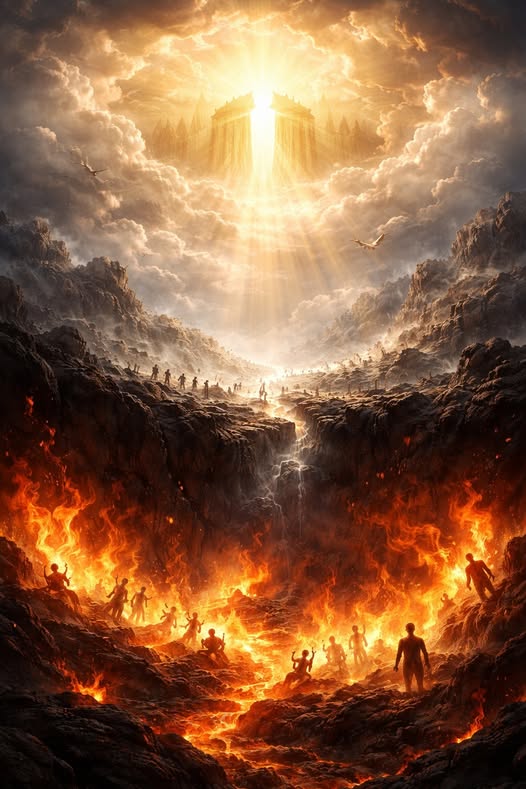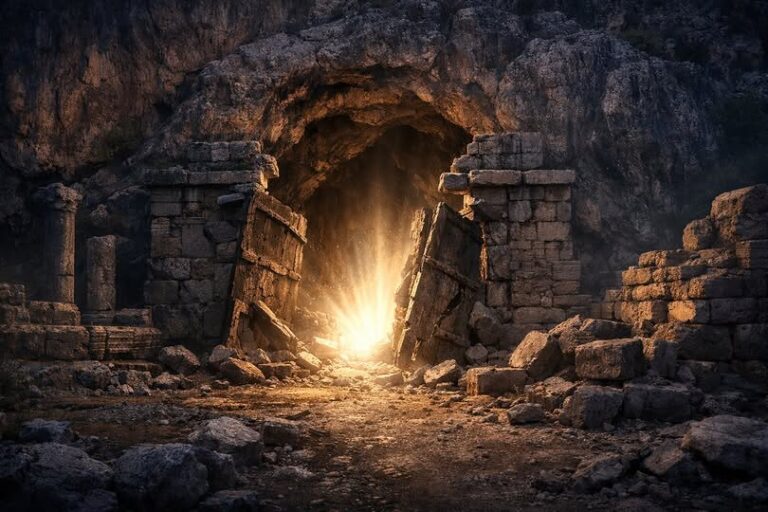
In Islamic eschatology, the figure of Jesus (Isa in Arabic) is presented in a dramatically different role compared to the Christian understanding. Drawing on Joel Richardson’s book The Islamic Antichrist, this article explores how Jesus is portrayed as the general of the Mahdi’s armies, tasked with abolishing Christianity and establishing Islam as the sole religion on earth.
The Mahdi and Jesus: An Eschatological Alliance
In Islamic tradition, the Mahdi is a messianic figure who will appear at the end of times to restore justice and lead the faithful to victory. The Mahdi is seen as a leader who will unite Muslims and wage a global jihad to bring about a worldwide Islamic state. However, the Mahdi is not alone in this mission. Jesus, who in Christian theology is seen as the Son of God and the savior of humanity, takes on a subordinate role in Islamic eschatology, acting as the Mahdi’s lieutenant.
According to Islamic beliefs, Jesus will return to earth in the last days, descending from the heavens to join the Mahdi’s cause. Instead of leading a mission of salvation, as in Christian teachings, Jesus will support the Mahdi in his efforts to spread Islam across the globe. This alliance between the Mahdi and Jesus is central to Islamic eschatology, where Jesus plays a key role in the final triumph of Islam.
The Abolition of Christianity
One of the most striking aspects of Jesus’ role in Islamic eschatology, as presented in The Islamic Antichrist, is his mission to abolish Christianity. Islamic texts describe how Jesus will break the cross, a symbol of Christianity, to signify the end of Christian faith. This act symbolizes the rejection of Christian teachings and the assertion that Jesus was not the Son of God but a prophet of Islam. By breaking the cross, Jesus will deny the central tenets of Christianity, leading many Christians to convert to Islam.
Furthermore, Jesus is expected to dismantle the concept of the Trinity, a core doctrine in Christianity, and to promote the Islamic view of monotheism. His mission will not only target Christianity but also other religions, establishing Islam as the only true faith.
The Global Spread of Islam
Under the leadership of the Mahdi and Jesus, Islamic eschatology predicts a global conquest that will result in the widespread adoption of Islam. Jesus, acting as the Mahdi’s general, will lead the armies of Islam in a series of battles against non-believers, particularly targeting Jews and Christians. These conquests are seen as necessary to establish the dominance of Islam and to fulfill the prophecy of a world ruled by Islamic law (Sharia).
This vision of Jesus as a military leader stands in stark contrast to the Christian portrayal of him as the Prince of Peace. In Islamic eschatology, Jesus’ role is not one of reconciliation but of enforcing the submission of all people to Islam.
The Christian Perspective: Christ as the Conqueror of Evil
In contrast to the Islamic portrayal, Christian eschatology, particularly as presented in the Book of Revelation, depicts Christ returning as a conquering king, but with a fundamentally different purpose. In Revelation, Christ returns to defeat the enemies of His believers, bringing justice and vindication to those who have remained faithful to Him.
Christ’s return in Christian theology is marked by the final defeat of evil, the binding of Satan, and the establishment of an eternal kingdom where righteousness dwells. His victory is not just a military triumph but a spiritual one, leading to the renewal of all creation. This portrayal emphasizes Christ’s role as the protector and redeemer of His followers, contrasting sharply with the Islamic view where Jesus enforces the dominance of Islam.
A Disturbing Parallel: Jesus in Islamic Eschatology and the False Prophet in Revelation
What makes this Islamic portrayal of Jesus particularly concerning to many Christians is how closely it mirrors the description of the false prophet in the Book of Revelation. In Christian eschatology, the false prophet is a deceptive figure who leads people astray, supporting the Antichrist and performing miraculous signs to convince the world to follow a false religion. The false prophet’s role includes promoting a false messiah and leading a global movement that opposes the true Christ.
The similarities between the Islamic Jesus, who assists the Mahdi in establishing a global Islamic state and abolishing Christianity, and the false prophet in Revelation, who deceives the world into worshiping the Antichrist, are striking. Both figures are portrayed as leading many away from the true faith and enforcing the dominance of a false religious system. This parallel has led some Christians to view the Islamic eschatological narrative as a potential fulfillment of the warnings in Revelation about end-time deception.
Conclusion
The depiction of Jesus in Islamic eschatology as the general of the Mahdi’s armies challenges the traditional Christian understanding of his role. Instead of being the savior who offers redemption to all, Jesus is presented as a figure who will help to establish Islam as the sole religion, abolishing Christianity and all other faiths. This portrayal, as outlined in Joel Richardson’s The Islamic Antichrist, offers a provocative and unsettling vision of the end times that contrasts sharply with Christian eschatological views.
Moreover, the close resemblance between the Islamic portrayal of Jesus and the false prophet in Revelation raises significant concerns within Christian circles. Understanding these differences is crucial for engaging in informed interfaith dialogue and recognizing the profound theological divergences that shape Islamic and Christian eschatological beliefs. While both traditions acknowledge the return of Jesus, the roles and missions ascribed to him are fundamentally different, reflecting the broader theological contrasts between Islam and Christianity.
Discussion Questions
- How does the portrayal of Jesus in Islamic eschatology as the Mahdi’s general challenge or reinforce existing interfaith dialogues between Christians and Muslims?
- In what ways do the contrasting eschatological roles of Jesus in Islam and Christianity reflect broader theological differences between the two religions?
- How does the comparison between the Islamic portrayal of Jesus and the false prophet in Revelation affect Christian interpretations of end-time prophecies?
Sources of Additional Information
- Joel Richardson, The Islamic Antichrist: The Shocking Truth about the Real Nature of the Beast (WND Books, 2009): This book provides an in-depth exploration of Islamic eschatology and its contrasts with Christian end-time beliefs.
- David Cook, Contemporary Muslim Apocalyptic Literature (Syracuse University Press, 2005): A credible source that examines modern Islamic apocalyptic literature, including the roles of the Mahdi and Jesus.
- Jane Dammen McAuliffe, ed., Encyclopaedia of the Qurʾān (Brill, 2001-2006): This encyclopedia provides an in-depth examination of Qurʾānic concepts, including eschatological themes and the figure of Jesus in Islamic theology.





